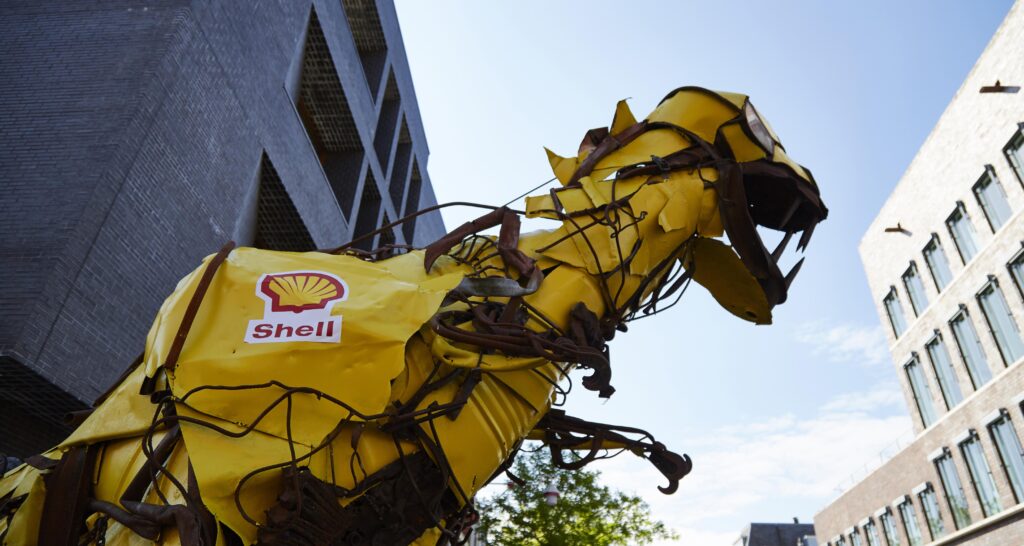Reinventing capitalism: a mindset shift to transform everything
We need a new form of capitalism, one that values and rewards sustainable practices and gets us on the path to 1.5°C. Business leaders are rising to the challenge and rallying behind a bold agenda for business action and long-term value creation, fully aligned with the SDGs and the Paris Agreement
Financing — Global

Our world is facing three pressing global challenges: climate emergency, loss of nature, and growing inequality. Each of them, on its own, can endanger the safe operating space for humanity and the planet, as well as the license to operate for business. And if there is one thing that we have learned from the COVID-19 pandemic, it is how interconnected these challenges are.
Action to address these challenges and for accelerating the transition to a sustainable world is urgently needed now. It’s essential if we are to achieve the UN Sustainable Development Goals (SDGs) and the Paris Agreement’s goal to limit global warming to well below 2°C, to 1.5°C above pre-industrial levels. We also need a long-term vision that we can all rally behind: over nine billion people living well, within planetary boundaries, by mid-century. This is the vision of the comprehensive, forward-looking, and pragmatic Vision 2050: Time to Transform report. It has been developed over the past two years by more than 40 global business leaders united in the World Business Council for Sustainable Development (WBCSD) and a strong external review committee.
Achieving this relatively simply worded vision requires a wholesale transformation of everything we have grown up with. Energy must decarbonize, materials need to go circular, and food must be produced sustainably and equitably, providing healthy diets. The need to transform systems is rightfully the concept that everyone in sustainability is talking about, and it must be backed up by actions. It is now or never.
Hence, the Vision 2050 business framework focuses on nine pathways of systems transformation, written in an actionable format, and aligned with the SDGs and the Paris targets. Each of the nine transformation pathways contains 10 action areas for the decade ahead. These areas are designed to help companies drive transformative change in their strategies, business operations, and impact on society.
Reinventing capitalism: mainstreaming ESG
Making real progress on the nine pathways will depend on radical shifts across three strategic business mindsets. Leaders everywhere need to change their mindsets toward:
- building long-term resilience
- a regenerative approach to business
- ultimately, reinventing capitalism
The most critical of these mindset shifts is that of reinventing capitalism. It means that economic systems, incentives, global accounting standards, and capital market valuations will no longer just be based on the financial performance of business. Instead, they will integrate the impact on the planet and people as part of how we define success and determine the enterprise value.
Integrating environmental, social, and governance (ESG) into mainstream finance will be crucial. Transparency will help, giving way to capital markets that properly value and reward sustainable practices and mobilize more capital to ultimately accelerate sustainable development and the transition to a 1.5°C world. Doing so will go a long way to helping to build long-term resilience into the global economic system, and to supporting more robust decision-making and long-term value creation. All of these are critical elements of reinventing capitalism, so that it no longer encourages the kinds of behaviors that contribute to climate change, nature loss, and inequality.
Companies cannot reinvent capitalism on their own. But they can recognize that the system they are part of is failing society in significant ways, and can do something about it. A reinvented capitalism has five key characteristics that companies should strive for:
1. Stakeholder-oriented, rather than shareholder value maximising
The purpose of business is to create value for all stakeholders: employees, customers, suppliers, communities, the natural environment, and shareholders. These multiple obligations can and should be harmonized and incorporated into corporate decision-making, governance models, and incentive systems.
2. Impact-internalizing, rather than impact-externalizing
Positive and negative social and environmental impacts should be internalized into the relative price of goods and services, and market valuations of companies. Businesses and investors should seek to optimize performance across three dimensions: risk, return, and impact. Governments should step in to price externalities where markets are not able to internalize them on their own.
3. Geared toward the long term, rather than the short term
The goal of reform should be to stretch businesses’ and investors’ time horizons to better align these with the much longer timeframes over which social and environmental feedback loops play out. This would lead to better pricing and management of long-term risks such as climate change, ultimately averting “the tragedy of the horizon.”
4. Regenerative, rather than degenerative
Regenerative capitalism is based on the premise that there are universal principles and patterns of systemic health, such as circularity and balance, that can and should be integrated into economic system design. Companies should seek to actively contribute to the health of economies, societies, and the environment. Both business and policy action should be guided by the need to preserve and enhance multiple forms of capital, including social and natural capital.
5. Accountable, rather than unaccountable
Both capital markets and regulators must provide active oversight and control of companies, holding them accountable for their actions and impact. Investors should prioritize stewardship, not just profit maximization. Fiduciary duties should evolve to reflect this dual purpose. It is also essential for markets to be regulated and counterbalanced by governmental and non-governmental institutions that are strong enough to be effective, and inclusive enough to represent the interests of society as a whole.
In closing: it is time to transform
There is an increasing awareness and recognition of the vital role that businesses and capital markets can have in realizing the ambitious targets set out in global agreements such as the SDGs and the Paris Agreement.
We need to fundamentally reinvent capitalism and redefine the meaning of value creation. We are at the start of the decade of delivery. Businesses and financial institutions who take into account a wider range of capital and develop innovative business models will be better equipped to adapt to emerging issues and remain competitive in a fast-changing world. The move to a capitalism of true value for all will accelerate, faster than anything else, the transformation toward nine billion+ people all living well, within planetary boundaries.
I see this as a hugely exciting prospect, but I know it’s not an easy one. Whether you like it or not, we are all changemakers now. Business must play a leading role in transforming toward Vision 2050, working together with governments, regulators, investors, and all people.
It is time to transform. It is time to think systems. It is time to create true value, now. I count on every changemaker (that is, everyone) to join us on the decisive journey of our generation.





